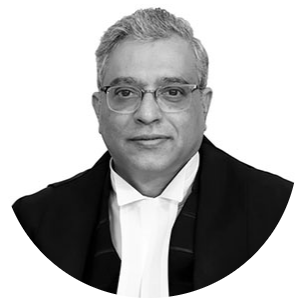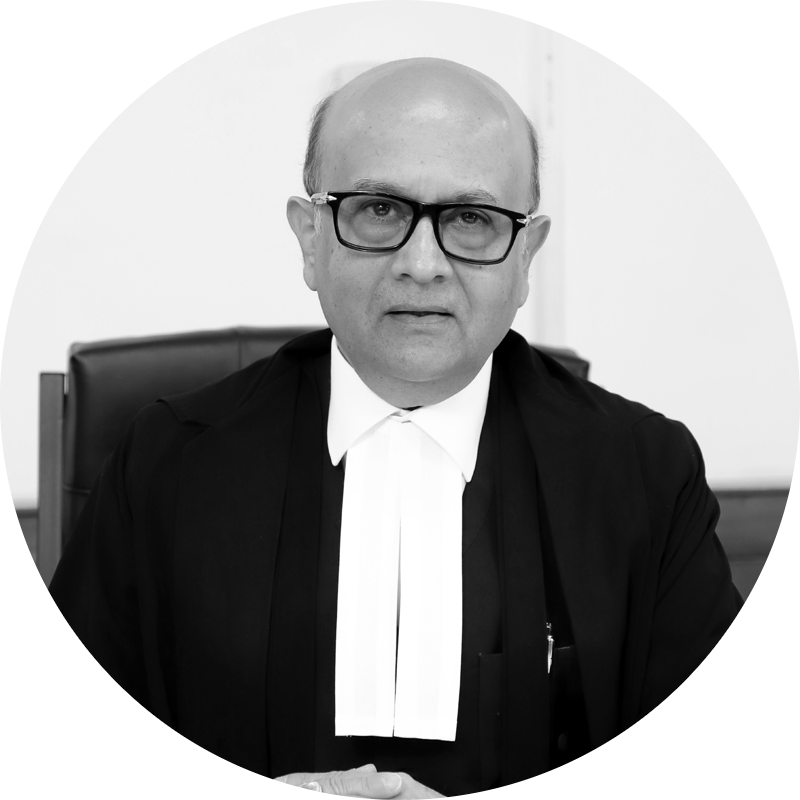Appointment of Arbitrators by Ineligible Persons
Central Organisation For Railway Electrification v ECL-SPIC-SMO-MCML (JV), JSW Steel Limited v South Western Railway
Citation: 2024 INSC 857
The Supreme Court held that unilateral appointments of arbitrators breached the principles of equality
Decided
Parties
Appellant : Central Organisation For Railway Electrification, JSW Steel Limited
Lawyers: Senior Advocates Gourab Banerji, Neeraj Kishan Kaul, S. Ravi Shankar
Respondent: ECL-SPIC-SMO-MCML (JV), Union of India, Public Sector Undertakings
Lawyers: Solicitor General Tushar Mehta, ASG K.M. Nataraj, ASG Madhavi Divan, Senior Advocates Arvind Kamat, Guru Krishna Kumar
Case Details
Case Number: SLP(C) Nos.24173-74 of 2019
Next Hearing: August 21, 2024
Last Updated: November 9, 2024
Key Issues
Can a person who is ineligible to be an arbitrator in a dispute nominate another person to be an arbitrator?
Can a party to an arbitration unilaterally appoint a panel of arbitrators to pick the arbitral tribunal?
Case Description
The Central Organisation for Railway Electrification (CORE) had a work contract with ECL-SPIC-SMO-MCML, a Joint Venture Company (JV). On November 1st, 2017, CORE terminated the work contract as the JV failed to fulfil certain obligations.
ECL-SPIC-SMO-MCML, the respondents in the present case, challenged that termination at the Allahabad High Court. The HC recognised that the parties had a General Conditions of Contract (GCC) which included an arbitration clause, and dismissed the petition on November 28th, 2017. It directed the parties to resolve the dispute through arbitration as per the GCC. The GCC provided for the creation of an arbitral tribunal comprising three members.
Section 12 of the Arbitration Act
Section 12 of the Arbitration and Conciliation Act, 1996 (the Act) provides the grounds to challenge an Arbitrator’s appointment. In 2015, an amendement to the Act inserted Sec. 12(5). This provision states that irrespective of a previous agreement stating otherwise, ‘any person whose relationship, with the parties or counsel or the subject-matter of the dispute, falls under any of the categories specified in the Seventh Schedule shall be ineligible to be appointed as an arbitrator’.
The Seventh Schedule enlists a series of relationships which make a person ineligible to be an arbitrator. The 2015 amendment also provided that the parties could mutually agree to waive this provision.
Modification of the GCC
After the amendment to the Act, CORE modified 2 provisions of the GCC in 2016—Sec. 64(3)(a) and 64(3)(b). Sec. 64(3)(a) provided for the appointment of arbitrators when the applicability of Sec. 12(5) of the Act is waived. Sec. 64 (3)(b) provided for the appointment of arbitrators when the applicability of Sec. 12 (5) of the Act was not waived.
The modified provision of the GCC provided that when the applicability of 12(5) is waived and the claim is less than Rs. 1,00,00,000/- the General Manager could appoint a sole arbitrator. When the claim is more, the panel would comprise three Gazetted Officers not below the rank of Junior Administrative Grade or two Railway Gazetted Officers not below Junior Administrative Grade and a retired Railway Officer retired not below the rank of Senior Administrative Grade Officer.
When the applicability of 12(5) is not waived, the modified provision of the GCC provided that the Arbitral Tribunal shall consist of a panel of three retired railway officers not below the rank of Senior Administrative Officer as the arbitrators.
As per the GCC, CORE had to provide a list of four nominees to the respondents. The respondents would further choose 2 nominees and communicate their names to the General Manager who would then choose the 3rd arbitrator.
Allahabad HC Appoints Sole Arbitrator
In accordance with the GCC, CORE provided the respondents with a list of four arbitrators to choose from twice. The respondents did not choose two arbitrators and approached the Allahabad HC to appoint a sole arbitrator instead. They claimed that the CORE’s nominees were retired officers and were therefore ineligible to become arbitrators.
CORE maintained that the HC could not appoint a sole arbitrator as the GCC permitted the parties to appoint them. On January 3rd, 2019, the HC appointed a retired judge as the sole arbitrator to adjudicate the dispute.
SC Sets Aside HC’s Appointment (2019)
Aggrieved by the HC’s decision, CORE moved the SC through a Special Leave Petition. They claimed that the HC had erred by appointing a sole arbitrator contrary to the GCC.
A 3-Judge Bench of the SC comprising Justices R. Banumati, A.S. Boppanna and Hrishikesh Roy heard the case. The respondents argued that the HC was right in appointing the sole arbitrator because:
- Retired or working members were ineligible to be appointed as arbitrators according to Sec. 12(5) read along with the 7th Schedule of the Act.
- The General Manager is ineligible to be an arbitrator himself. Therefore, he could not appoint another person to be an arbitrator. They relied on the SC’s judgements in TRF Ltd. v Energo Engineering Projects Ltd, (2017) and Perkins Eastman Architects DPC v HSCC (India) Ltd (2020)
CORE argued that regardless of whether eligibility clause under Sec.12(5) was waived or not, the GCC provided for the appointment of an arbitral tribunal. The HC was wrong to intervene and appoint a sole arbitrator.
On December 17th, 2019, the 3-Judge Bench of the SC set aside the arbitrator appointed by the Allahabad HC. They held that the arbitrator had to be appointed as per the GCC. Further, a person could not be deemed ineligible simply because he was a retired officer.
On the question of the General Manager, the SC held that the power of the GM was offset by the fact the respondents could choose two out of the three arbitrators. The Bench also clarified that the decisions in TRF Limited (2017) and Perkins Eastman (2020) did not apply to the facts of the current case. The Court stated the choice of the parties had to be given importance and therefore, the HC was wrong in appointing the arbitrator.
Reference to a Larger Bench
In, another 3-Judge Bench Union of India v M/s. Tantia Constructions Ltd., (2021) disagreed with the view of Central Railway and referred the case to a larger bench in 2022.
On June 26th, 2023, the SC announced a new five-judge bench that would hear this reference.
On July 12, 2023, a Constitution Bench led by CJI Chandrachud postponed all hearings related to the appointment of arbitrators by two months as an Expert Committee of the Union Government was in the process of examining the provisions of the Arbitration and Conciliation Act, 1996.
On 17 January 2024, Attorney General R. Venkataramani informed the Bench that a draft report was ready and sought more time to review it. The Bench granted time till 16 April 2024. Further, they held that if nothing was finalised by then, they would proceed to hear the case on 23 April 2024. They also directed that the report be circulated to all parties of the case by mid-February 2024.
On 28 August, a five-judge bench led by CJI Chandrachud heard the case for three days and reserved judgement on 30 August.





